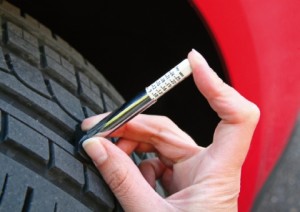Table of Contents
Tyre troubles out-of-date tyres

Tyre troubles out-of-date tyres
Scarily, this problem could have raised its ugly head again ! So, in the past, tyre wholesalers have been buying tyres at a cheap price . Hence, save them until they can get a higher price.
Probably when the pound loses value !
Consequently, the market price goes up. Of course, this is also common in many other industries. However, tyres have a certain shelf life . Meaning some tyres are out of date. By two and three years and even more.
This all kicked off with a message from one of my customers. While he was away on holiday, he had a puncture, and because his spare tyre was flat,? He had to buy a new tyre from the local tyre depot, somewhere in Devon.
Tyres bought on holiday !
He had no need to tell me, really, but he just wanted to warn us of what was going on. The tyres that he had on his car were Bridgestone Potenza S02 tyres. The guy at the tyre centre did not have them in but he said that if he returned the next day, then he
would get one in for him. Tyre troubles out-of-date tyres
The guy was at the start of the holiday, so he left his car and carried on with his holiday. The guy went back, and the new Bridgestone tyre had been fitted and the puncture repair to the spare had been completed.
My customer is a fussy kind of guy and had recently read an article about “how to age a tyre by the coding on the tyre’s sidewall.”. He could not believe that the tyre was made in 2000 and was, in fact, 12 years old.
The life limit of a new tyre is 6 years. Tyre troubles out-of-date tyres
All tyres that have been kept in storage should not be sold or put to use if they are over 6 years old, from their date of manufacture.
Also, when a tyre has been in use on a vehicle, the effects of ageing will be lessened to a degree, but these tyres should be replaced after 10 years. This is the tyre manufacturer’s recommendation, and there does not appear to be a law against it. Tyre troubles are imminent.
The consumer does not know this?
Q: Why is it vital to keep an eye on my car’s tyres?
A: Simply put, your tyres are what keep your vehicle on the road, mate. Without them in good condition, you’re looking at a shaky ride, which no one wants, especially on a rainy day in Halifax!
Q: What happens if my tyres are underinflated?
A: Underinflated tyres? It’s like attempting to run the Yorkshire Marathon in slippers! They diminish fuel efficiency, make your automobile behave like a three-legged puppy, and wear out more quickly. It’s similar to running on a flat tyre: you won’t get very far and will be aware of every bump in the road.
Q: How about overinflated tyres?
A: Overdoing things is no better. Imagine yourself jumping around like a pogo stick at Halifax Piece Hall. Overinflated tyres provide a rough ride, reduce grip, and wear out unevenly. In addition, potholes are more likely to cause harm.
Q: How often should I check my tyre tread?
A: As often as you complain about the weather in Halifax—which is rather often! Legally, you must have at least 1.6mm of tread depth over the central three-quarters of the tyre. Less than that, and you not only risk a fine but also jeopardise your safety.
Q: What’s the big deal about wheel alignment?
A: Have you ever tried pulling a grocery trolley with wobbly wheels at your local Asda? That is what it feels like to have a faulty wheel alignment. It wears your tyres unevenly and can cause your automobile to handle weirdly. It’s recommended to get it checked if you hit a big pothole or your car starts acting strangely.
Q: Can the weather effect my tyres?
A: Absolutely! Britain’s weather is as unpredictable as a cricket match. Cold weather can lower tyre pressure, whereas hot weather can raise it. It’s a good idea to rotate them with the seasons, just like you would your clothing.
Q: Is there any history of automobile tyres that I should know about?
A: Funny, you should ask! John Boyd Dunlop, a Scotsman, invented pneumatic tyres in 1888. Originally designed for bicycles, they were quickly adopted for use in automobiles. So, every time you check your tyres, you’re following a long-standing British tradition!
Did you know that tyres have a long history in the UK?
Eric Roberts. Tyre troubles out-of-date tyres
http://www.rospa.com/road-safety/advice/vehicles/tyre-safety-technology/information/

